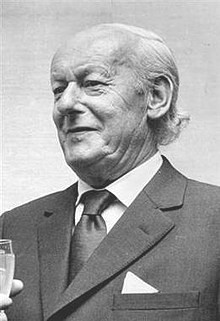REVIEW POTPOURRI: English writer H. E. Bates
 by Peter Cates
by Peter Cates
English writer H. E. Bates
The prolific English writer, H.E. Bates (1905-1974), published his novel The Purple Plain in 1947 and it was made into a 1954 film starring Gregory Peck, of which I have only the vaguest memories when it was shown on one of the Sunday-Afternoon-at-the-Movies programs of Maine’s channel 8 during my youth of the very early ‘60s. The author spent some time in World War II Burma and was inspired to write this novel.
The main character Forrester is a very skilled pilot flying medical personnel and supplies around the country amidst dangerous conditions. He is also battling with his own personal demons and taking on very dangerous missions more out of a death wish.
The reasons lie mainly in losing his wife during a honeymoon dance at a London nightclub when a bomb lands on it from German warplanes. He miraculously survives but is tormented by the gamut of depression and survivor guilt since then.
He is already stationed in blisteringly hot Burma at a desert medical station, where he and a colleague Blore share a tent as their living accommodations, when the novel opens. He then meets a Burmese nurse Anna and their professional relationship starts to blossom into something special. Meanwhile a Japanese bombing raid has all hands on deck and Forrester is doing doctoring, too. But he and Anna are having joyful moments too and his will to live increases.
Halfway through the book, Forrester is flying himself, Blore and his navigator Carrington elsewhere when the plane crashes in the middle of the desert. All three men survive miraculously, but Carrington’s legs are badly burned; Blore and Forrester sustain some burns but are forced to carry the navigator while trying to walk 30 miles to safety with a thermos of water and little else for nourishment; and several chapters of survival in the desert ensue. The book concludes with triumph.
What makes the novel special was Bates’s gift with words – those details that kept me reading, that created sympathy for, and identification with, the characters. Examples abound but I only have room for a few:
“He felt himself to be lost in the center of a vast and dusty arena blistered by relentless sun.”
“Before he could say anything more, she turned away and began to walk back along the track. She turned and smiled for a moment and he lifted his hand, standing for a moment or two longer to watch her go.”
Now the last sentence of this 308 page novel.
“Outside, the plain was purple in the falling dusk, and the long day was over.”
Responsible journalism is hard work!
It is also expensive!
If you enjoy reading The Town Line and the good news we bring you each week, would you consider a donation to help us continue the work we’re doing?
The Town Line is a 501(c)(3) nonprofit private foundation, and all donations are tax deductible under the Internal Revenue Service code.
To help, please visit our online donation page or mail a check payable to The Town Line, PO Box 89, South China, ME 04358. Your contribution is appreciated!



Leave a Reply
Want to join the discussion?Feel free to contribute!